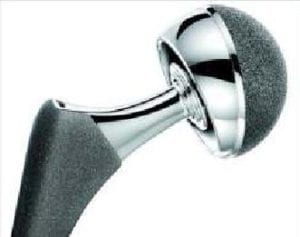FDA Proposes Premarket Approval for Metal Hips
Last month, the U.S. Food and Drug Administration issued a Safety Communication to set some general guidelines for physicians and patients who have metal-on-metal (MoM) hip implants.
Last month the agency also issued a proposed order that would require MoM hip manufacturers to submit premarket approval (PMA) applications before they sell any more of these devices.
Those under consideration for a PMA include hip joint metal/metal semi-constrained with a cemented acetabular component prosthesis and hip joint metal/metal semi-constrained with an uncemented acetabular component prosthesis.
They are currently considered a Class III medical device (high risk) yet are allowed to enter the U.S. market and be implanted in patients with an exchange of paperwork called a 510(k) notification to the FDA. No long term safety or clinical testing is required.
To make it to market under a 510(k) means all a manufacturer has to do is to name a predicate device, one that is substantially similar to the new device that is already being sold. Unfortunately, even a recalled medical device can serve as a predicate.
The Federal Food, Drug, and Cosmetic Act was amended by the Medical Device Amendments of 1976 ruling. Preamendment devices already in the marketplace by then were allowed to be grandfathered in bypassing the more stringent PMA.
There are still about 19 medical devices that were not reclassified into Class II devices (medium risk) or reevaluated to determine if they needed to file PMA applications.
A PMA application is a requirement for expensive and extensive clinical trials for the manufacturers to assure the FDA the device is safe and effective. It also requires years of evaluation before a device can be considered for FDA approval.
For patients, it is some degree of assurance the device has passed some scrutiny for safety.
The proposal is the result of last June’s expert gathering of the FDA’s Orthopedic advisory panel, which was convened due to the unprecedented number of injuries resulted from the largely unregulated arena of hip implants.
Reclassifying metal-on-metal hips to Class II was considered and rejected back in 2001 due to a lack of information. The reports of adverse events have only increased since then as have the recalls.
In additional to U.S. adverse event reports and recalls, the United Kingdom’s version of our FDA has published several alerts concerning soft tissue reactions from MoM hips including the femoral head size, acetabular cup angle and metal ion risks. The Australian Orthopaedic Association National Joint Replacement Registry has found “metal/metal bearing surface has the highest risk of revision compared to all other bearing surfaces.”
The public has until April 18 to comment on the PMA proposal. Comments can be submitted here.
Share This



